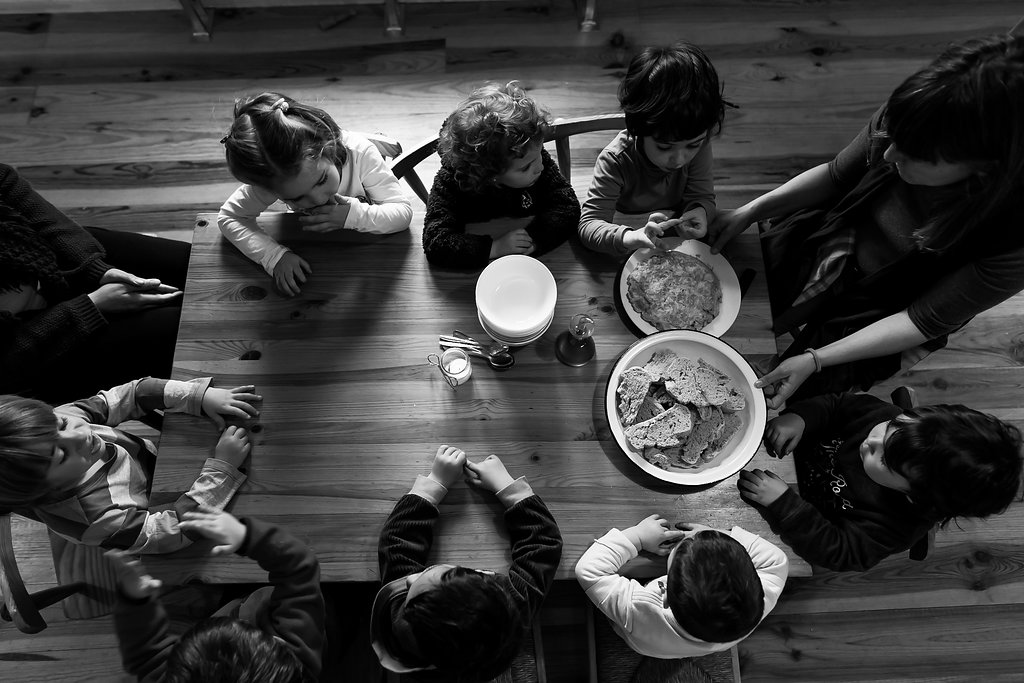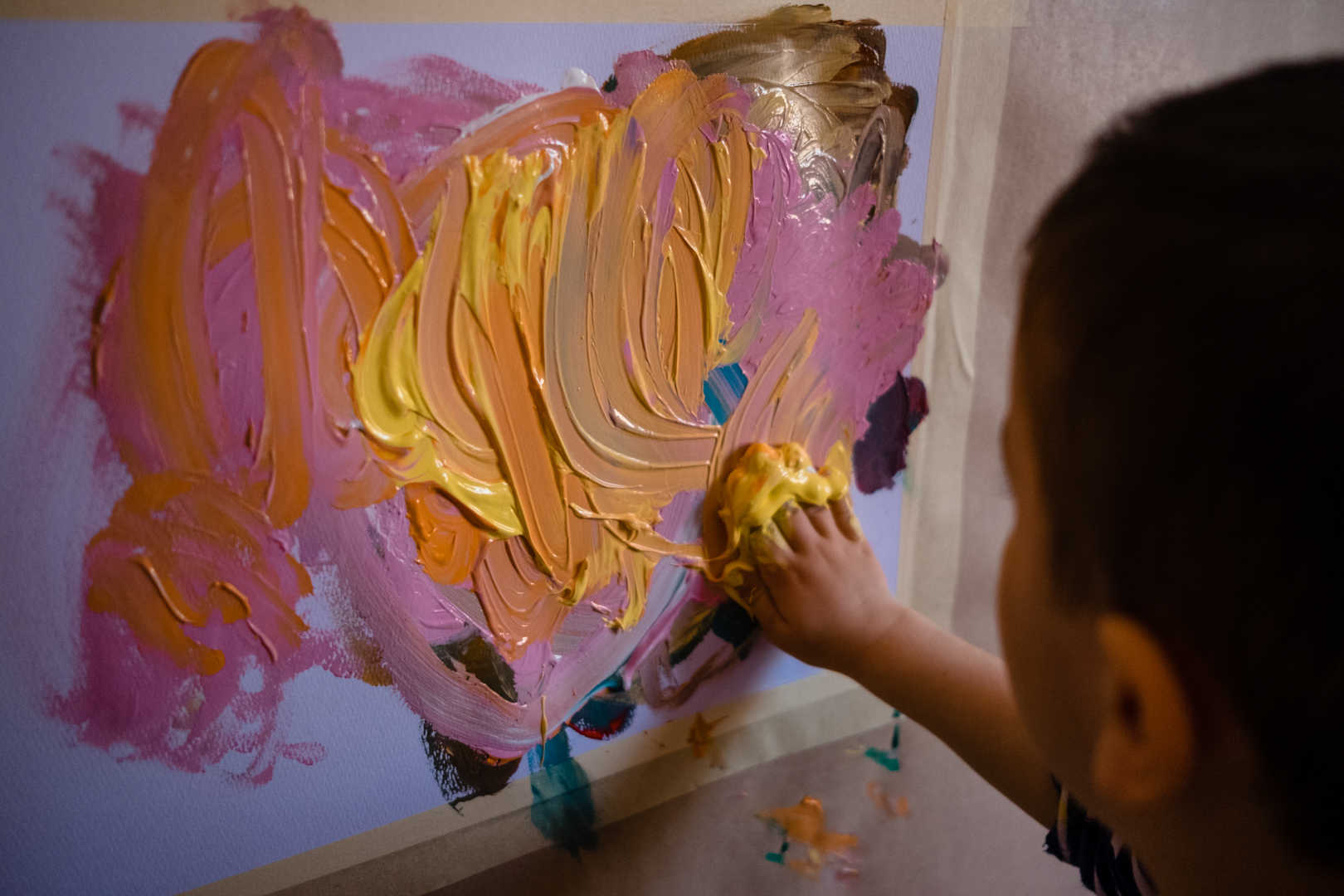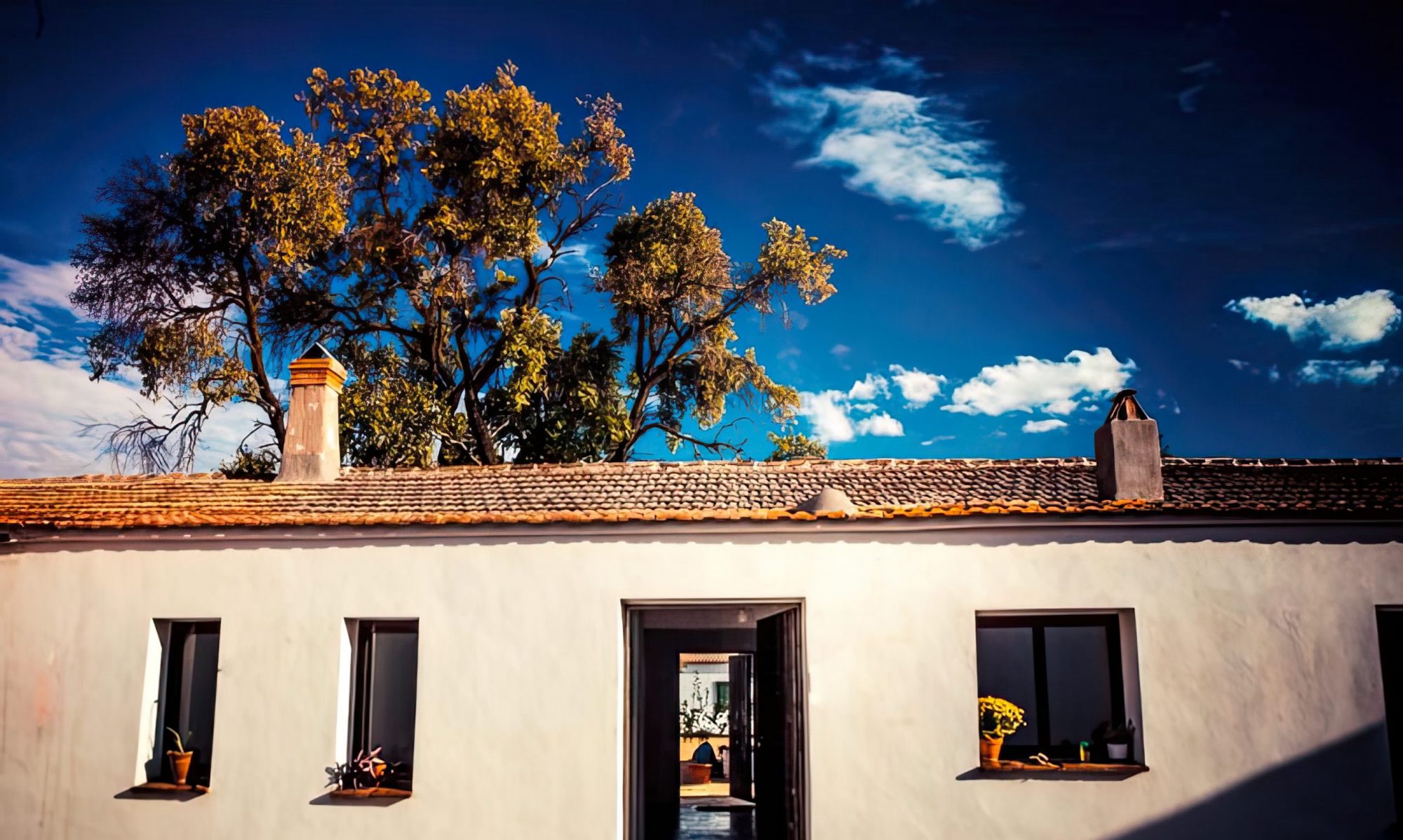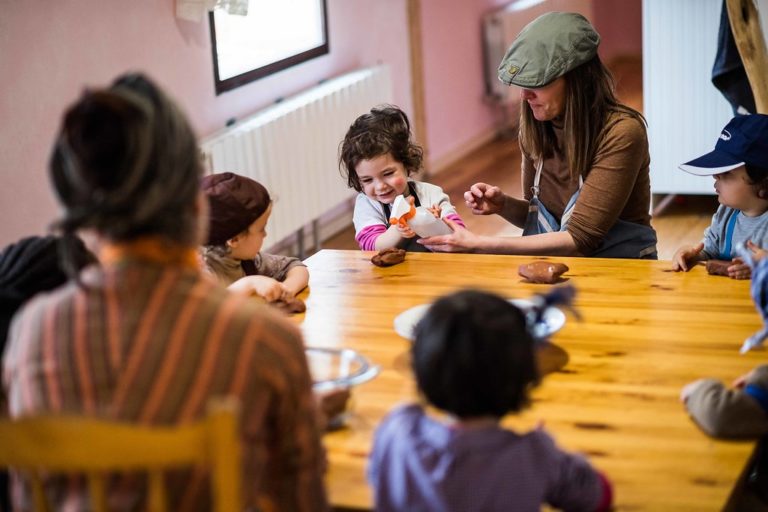Playgroup 9 months to 3 years.
The stage of 0 to 3 years is the most «sensitive» stage in the life of a human being, it is where the foundations are laid in his thinking, feeling and acting. What is done correctly or erroneously in these years, will positively or negatively influence the rest of the child’s life.
The objective of this stage is to achieve a healthy growth and an increasingly detailed structuring of the organs, and for this the child needs, in addition to food, possibilities of active sensory experiences, since the structure and differentiate the entire body.
For all these reasons, the play space we conceive for this stage is a playgroup where we work with reduced ratios in order to be able to accommodate all the needs of the children in a harmonious way. We work in a homely, warm and friendly atmosphere, in which the children find the space an extension of their own home.
We work rhythmically, in moments of concentration (food and hygiene, artistic activities, rust, songs and fingerplays, stories…) and expansion (non-directed free play and autonomous movement); in this way the children develop calmly and at their own pace, depending on their maturity stage.

In our daily work with children, we take into account other authors such as Emmy Pikler and Sally Goodard. Professionals with long careers who have researched and studied for years how movement and free play are the basis for healthy physical, cognitive and emotional development.
The adaptation period is carried out with the families present. Children need time and space to form a healthy bond with the reference teacher, so it is also essential that this is done with patience, giving the child the opportunity to live in the same environment with the reference teacher and his or her family. This also gives confidence to the family, as they have the opportunity to see how the work is done and how their child is doing. Trust between parents and teachers is fundamental and basic for children to grow up in harmony.
The materials we use are natural and sustainable. This favours the development of the senses and connects children with the natural environment to which they belong, promoting environmental and ecological values in the future.

Contact with nature is fundamental and basic for the healthy growth and development of their bodies; it also favours the connection between mind and emotions. Children learn and mature harmoniously if they are in direct contact with a natural environment. The benefits are well known from different studies, as well as its negative effects if children are not close to nature or cannot enjoy its benefits on a daily basis.
Physical configuration, specifically motor and sensory, first of all, lays the foundation so that spiritual and mental activities can be developed in a healthy and lasting way. The way out paves the way in. The child must know how to stand up in order to understand the world; you must be able to achieve things in order to conceive them; You must be able to smell and taste things, pick them up and touch them with your hand, to perceive the world as something conceivable, manageable and accessible.
The intellectual capacity that occurs later is not acquired through intellectual knowledge, but through tangible activities that the child performs during early childhood, which are reflected in similar structures in the organs and the brain. The forces that make the body grow and form at first are the same forces that, later on, transform and manifest themselves as forces of imagination, thinking and reflection.
Waldorf Pedagogy is committed to sustainability and therefore follows the following principle:
«Allow children to take their time for each step according to their own individual needs. The more their basic abilities can mature, the stronger the child will be».
“The child is to be received with respect, brought up with love, set free at last in life.». Rudolf Steiner.


